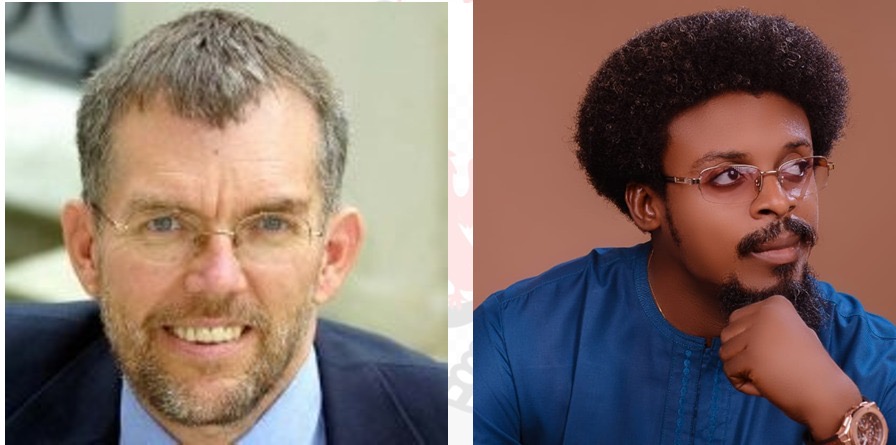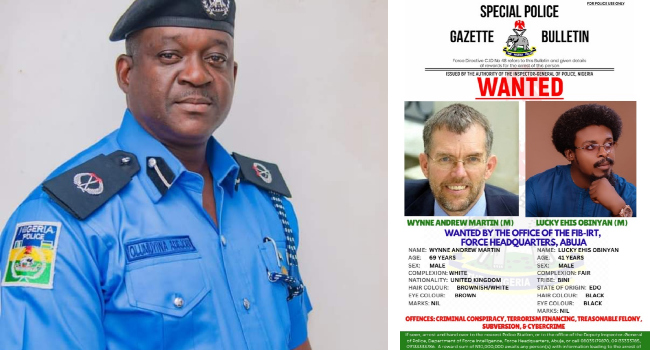The Nigeria Police Force has declared a British national, Andrew Wynne, also known as Andrew Povich, and a Nigerian citizen, Lucky Obiyan, wanted for allegedly plotting to overthrow President Bola Tinubu’s administration. The announcement was made by Force Public Relations Officer, Muyiwa Adejobi, during a press conference in Abuja on Monday.

According to Adejobi, Wynne is accused of building a network of sleeper cells intended to topple the government. The police allege that the foreign national rented space at Labour House in Abuja and established a school as a front for his activities.
Inspector-General of Police, Kayode Egbetokun, has filed a six-count charge of treason and other criminal offenses against Wynne and other organizers of the recent #EndBadGovernance protests at the Federal High Court in Abuja. The charges allege that the defendants conspired to commit felonies, including treason, between July 1 and August 4.
Adejobi further revealed that the police have launched a comprehensive investigation into the activities of foreign nationals and subversive elements plotting to undermine Nigeria’s democratically elected government. He stated, “Following extensive intelligence gathering and collaboration with other security agencies, nine suspects have been apprehended, who received substantial financial backing from foreign sources to destabilize the country.”

The police spokesman emphasized the seriousness of the allegations, suggesting that the plot involved orchestrating violence across the country to facilitate an unconstitutional regime change.
This development comes at a time of political tension in Nigeria, with the Tinubu administration facing various challenges since taking office. The allegations of a foreign-backed plot to overthrow the government are likely to intensify scrutiny of international involvement in Nigerian affairs.
As the investigation continues, the Nigeria Police Force has called on the public to provide any information that could lead to the arrest of Wynne and Obiyan. The case has drawn significant attention, raising questions about national security and the stability of Nigeria’s democratic institutions.



